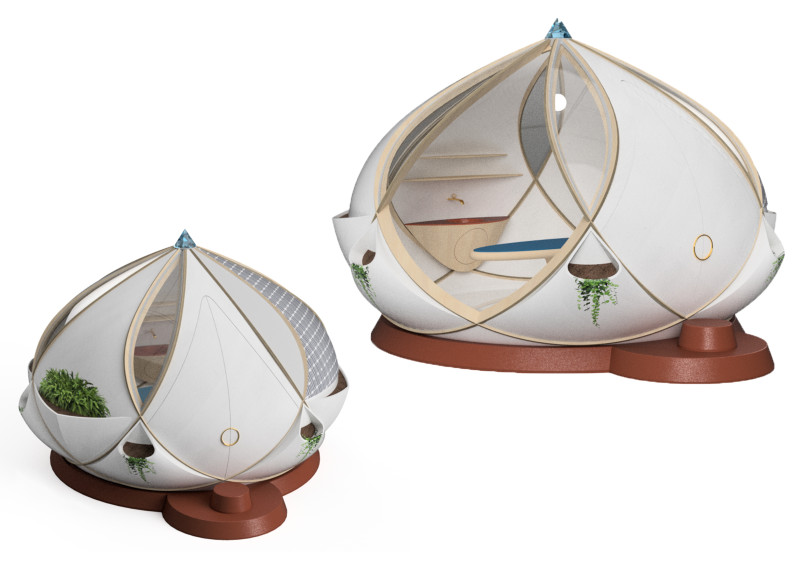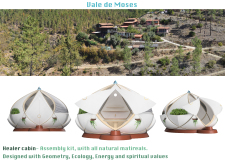5 key facts about this project
The Vale de Moses project showcases the Healer Cabin, an architectural effort that emphasizes harmony with nature. Located in a tranquil landscape, the cabin serves as a place for wellness and personal reflection. The design includes principles of geometry, ecology, energy efficiency, and spirituality, creating a unified experience for those who use it.
Spatial Organization
The Healer Cabin is designed as a modular assembly kit, which allows for flexibility in how it is used. This approach promotes a well-thought-out arrangement of spaces that encourages movement and interaction. Users can engage with both their surroundings and each other, accommodating both peaceful solitude and communal activities.
Sustainable Materials
A focus on sustainability is evident in the choice of all natural materials for the construction of the Healer Cabin. This commitment to using natural materials not only reduces environmental impact but also fosters a close relationship with the setting. It reflects a thoughtful approach to creating an environment that respects and enhances its natural context.
Geometric Harmony
Geometry plays an essential role in the design, adding balance and a sense of order to the cabin. The careful selection of geometric shapes contributes to its visual appeal while creating a calming atmosphere. This attention to geometric relationships also facilitates movement within the space, helping users connect with both the interiors and the exterior landscape.
Energy Considerations
While specific energy strategies are not detailed, the design suggests an emphasis on efficiency. This aligns with current architectural trends that prioritize resource conservation and aim to minimize harm to the environment. By incorporating elements that promote energy conservation, the Healer Cabin serves as an example of mindful architecture in a natural setting.
Large windows punctuate the cabin’s design, framing views of the surrounding landscape. These openings allow natural light to brighten the interior while establishing a strong connection to the outdoors.























































